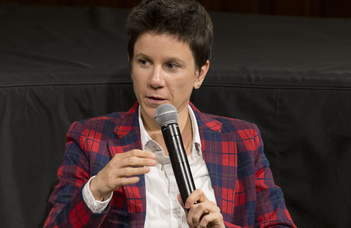Public Lecture of Fruzsina Molnár-Gábor

12. April 2019. 16:00
ELTE ÁJK Alkotmányjogi Tanszék (1053 Budapest, Egyetem tér 1-3.)
2019. April 12. 16:00 -
ELTE ÁJK Alkotmányjogi Tanszék (1053 Budapest, Egyetem tér 1-3.)
Personal data protection aims to protect the individuals from whom data originates, in particular to protect their rights and freedoms which may be compromised as a result of their data being applied in different ways. In the EU, the data protection regulatory framework possesses a fundamental rights character based on Art. 8 of the EU Charter of Fundamental Rights, the meaning of which has been determined by EU secondary legislation, originally by the Data Protection Directive and currently by the General Data Protection Regulation introduced in May 2016. The GDPR aims to secure an even higher level of protection of personal data in all member states. It is applicable to a broader range of personal data processing activities and grants individuals more rights in relation to a broader range of data categories. Global digitalization, international data sharing, and emerging data processing technologies pose new challenges to data protection. The evolution of data protection in constitutional law is closely linked to technological advances and was established in various countries as a response to increasing computerization. However, data protection regulations differ across countries and regions, both within the EU and globally. The presentation will elaborate on the chances for and limitations of data protection harmonization through the GDPR in the EU and beyond with a specific focus on data sharing between the EU and the US.
Fruzsina Molnár-Gábor (Dr. iur., University of Heidelberg) is group leader at the Heidelberg Academy of Sciences and Humanities and at the BioQuant Centre of the University of Heidelberg and is lecturer at the Faculty of Law, University of Heidelberg. Her professional expertise focuses on the regulation of biomedicine, including the legal fields of Public International law; the Law of the European Union; comparative public law as well as IT law. She advises international consortia on health data sharing and data protection. She is member of the Junge Akademie of the Berlin-Brandenburg Academy of Sciences and Humanities and the German Academy of Natural Scientists Leopoldina. She has received the Manfred Fuchs Price (2015), the promotion award of the Verwertungsgesellschaft (VG) Wort (2016) and the ReNEUAL Young Scholars Award (2019).

